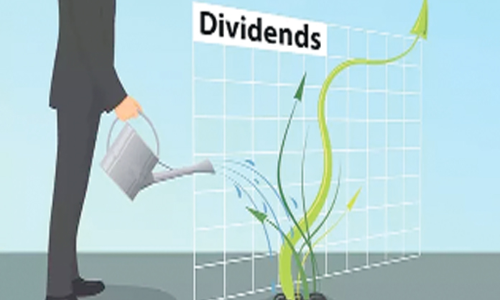Invest in dividend yielding Mutual Funds for consistent returns

The very mention of equity brings in thoughts about fear, losses and unpredictability Its true that equity markets are associated with all the said features, but one has to also look at the other value adding ones like that of gains, returns and longterm wealth creation Equity markets are always volatile and so are their returns
The very mention of equity brings in thoughts about fear, losses and unpredictability. It’s true that equity markets are associated with all the said features, but one has to also look at the other value adding ones like that of gains, returns and long-term wealth creation. Equity markets are always volatile and so are their returns.
Returns out of equities are of two types
1) the absolute capital gains made due to the price movement and
2) the dividend earned while holding a stock.
The stock price movements (upwards) provides for an opportunity to sell at a higher price while the dividend is announced by the company as a way of sharing their profits.
However, as an equity investor there is no guarantee that one earns a dividend just because the company made huge profits or sitting in surplus cash. The profit or surplus with the company is either used for expansion or put back into business and this reinvestment is also called as retained earnings. The amount and frequency of the dividend is decided by the board and it’s not always constant or periodic.
Companies would declare dividends not just when they make great profits but if the business environment is conducive for its operations with better future cashflows. This uncertainty is a bane for the investor expecting consistent or fixed returns from the equity investment.
Dividends are declared as a fixed amount per share and hence the shareholders earnings depend upon the shares held. These dividend amounts are tax-free in the hands of the shareholder while the tax is paid by the company as a dividend distribution tax (DDT) at a rate of 15 per cent on the aggregate dividend declared, distributed or paid.
The effective rate translates to 20.3756 per cent including a 12 per cent surcharge and a 3 per cent education cess. From Apr 1, 2017, an additional income tax of 10 per cent (plus the surcharge and cess) applies on a gross basis on dividend income declared, distributed or paid by a domestic company to a resident individual, HUF or partnership firm if the aggregated dividend income of the recipient exceeds Rs 10 lakh per annum.
Despite the market volatility and falling stock prices, some companies have paid dividend consistently. High dividend yield stocks comprise of stable businesses and attractive valuations time to time. This is because the dividend yield is factored into the stock price after the dividend declaration. Such stocks offer consistent returns on a periodic basis irrespective of the equity performance.
To spot such stocks is a difficult task and addressing this need is a crop of mutual funds that have exposure to equity with the aim of providing high dividend yield, substantial capital protection and a strong possibility of capital gains. The stress however is on the capital protection aspect of the fund which duly mitigates the risk proportion. Of course, funds don’t guarantee the returns, but the volatility and risk factors of these funds are a tad bit lower than those of the growth and value funds.
These funds are hence in the risk category of low to below average with returns of above average to high providing better risk-adjusted returns to the investors with a medium term to longer term in horizon. (The author is a co-founder of “Wealocity”, a wealth management firm and could be reached at [email protected])








